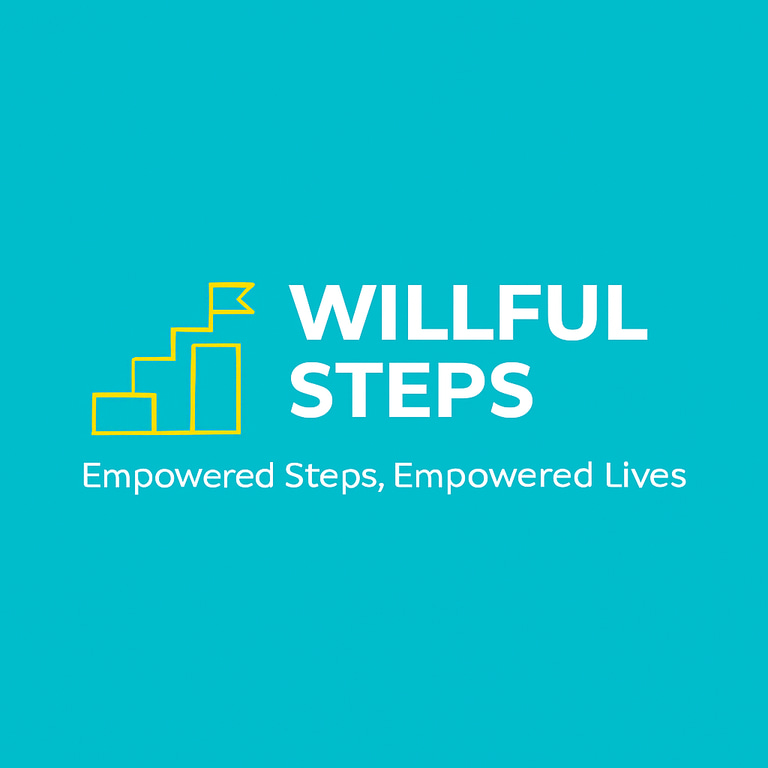Rejection Sensitive Dysphoria (RSD): Science, Leadership, and Support - A Deep Dive for Australian Workplaces
This article explores the current scientific understanding of RSD.
Michael J Perez
7/1/20254 min read


Rejection Sensitive Dysphoria (RSD) is an emerging topic in both clinical and organisational psychology, particularly as workplaces become more aware of neurodiversity and its impact on leadership.
While it Is important to point out that RSD is not a formal diagnosis, it is increasingly recognised as a significant challenge for many professionals, especially those in leadership or management roles.
This article explores the current scientific understanding of RSD, its effects on leaders in the workplace, and practical strategies, including the role of leadership coaching, to support managers experiencing RSD, all within the context of Australian workplaces.
What is RSD? The Clinical Perspective
RSD describes an extreme emotional sensitivity and pain triggered by the perception, real or imagined, of rejection, criticism, or failure.
Unlike general emotional sensitivity, RSD reactions are often intense and disproportionate, leading to acute distress, anger, or withdrawal (Dodson, 2023). While RSD is most commonly associated with attention deficit hyperactivity disorder (ADHD), it is also observed in people with autism spectrum disorder (ASD) and other neurodevelopmental conditions (Shaw et al., 2022).
From a clinical perspective, RSD is considered a symptom cluster rather than a standalone diagnosis. It is closely linked to emotional dysregulation, which is now recognised as a core feature of adult ADHD (Surman & Spencer, 2023).
Neuroimaging studies suggest that differences in emotional regulation pathways, particularly those involving the neurotransmitters dopamine and norepinephrine, may underlie the heightened sensitivity seen in RSD (Barkley, 2022).
A 2023 study in the Journal of Attention Disorders found that up to 65% of adults with ADHD experience significant symptoms of RSD, which can lead to impaired social functioning and increased risk of anxiety and depression (Brown, 2023). Importantly, these symptoms often persist into adulthood and can be exacerbated by workplace stressors.
RSD in the Workplace: Implications for Leaders
Leaders and managers with RSD face a unique set of challenges and opportunities.
Their heightened emotional awareness can be a source of strength, fostering empathy and strong interpersonal relationships. However, the same sensitivity can make them vulnerable to emotional burnout, impulsivity, and difficulties with feedback or conflict.
Strengths of Leaders with RSD:
Empathy and Emotional Intelligence: Leaders with RSD are often highly attuned to the emotions of others, which can enhance team cohesion and morale (Kern, 2024).
Creativity and Innovation: The drive to avoid rejection can lead to relentless self-improvement and creative problem-solving.
Authentic Leadership: Sensitivity to others’ perspectives can help foster trust and psychological safety within teams.
Challenges Faced:
Overreaction to Criticism: Constructive feedback may be perceived as a personal attack, resulting in defensive or avoidant behaviours.
Perfectionism and Impulsivity: Leaders may overwork themselves or make hasty decisions to avoid discomfort or disapproval.
Emotional Burnout: The constant effort to avoid perceived rejection can lead to exhaustion and disengagement.
People-Pleasing: A tendency to avoid conflict and seek universal approval can undermine boundaries and decision-making authority.
These challenges can create a feedback loop, where the leader’s fear of rejection leads to avoidance or overcompensation, which in turn limits their effectiveness and increases workplace stress (Tuckman, 2023).
The Impact on Managers and Workplace Culture
RSD does not only affect those in formal leadership roles. Managers with RSD may struggle to deliver or receive feedback, manage conflict, or maintain consistent communication. This can result in impaired collaboration, reduced innovation, and increased turnover if not addressed (Australian Psychological Society, 2023).
Moreover, the presence of RSD in leadership can shape organisational culture in both positive and negative ways. Leaders who are open about their struggles can model vulnerability and resilience, fostering a more inclusive and supportive environment. Conversely, unaddressed RSD may lead to miscommunication, perceived unfairness, or a culture of avoidance around feedback and performance management.
Supporting Managers with RSD: Evidence-Based Strategies
There is no “cure” for RSD, but it can be effectively managed with the right strategies. Australian workplaces can support managers with RSD by adopting a neurodiversity-affirming approach and implementing practical supports.
1. Reframe Feedback and Communication
Encourage a feedback culture that is constructive, empathetic, and solution-oriented.
Provide feedback in multiple formats (written, one-on-one, etc.) to allow time for processing.
Separate feelings from facts by helping managers distinguish between perceived and actual rejection.
2. Build Emotional Regulation Skills
Offer training in mindfulness, cognitive behavioural techniques, and emotional regulation.
Encourage practices such as deep breathing, journaling, and delayed response to emotionally charged situations.
3. Foster Support Networks
Provide access to mentors, coaches, or therapists familiar with RSD and neurodiversity.
Promote peer support and mentorship programmes to help managers navigate social interactions and build confidence.
4. Clarify Expectations and Reduce Uncertainty
Set clear, well-structured expectations for performance and communication.
Avoid ambiguous meeting invitations, which can trigger anxiety and rumination.
5. Promote an Inclusive Culture
Offer neurodiversity awareness training for all staff.
Recognise and celebrate diverse leadership styles, including those shaped by RSD and other neurodivergent experiences.
Leadership Coaching: A Targeted Approach
One innovative approach to supporting managers with RSD is Leadership Coaching.
Research indicates that coaching interventions like can significantly improve self-confidence, emotional regulation, and leadership effectiveness for managers with RSD (Jones & Taylor, 2024).
By combining clinical insights with practical workplace strategies, Willful Steps empowers leaders to harness their strengths while managing the challenges associated with RSD.
Conclusion
RSD is a significant but often overlooked challenge in the modern workplace, particularly for leaders and managers who are neurodivergent. By understanding the science behind RSD and its impact on leadership, Australian organisations can move beyond stigma and embrace practical, compassionate strategies to support their managers. Interventions such as Leadership Coaching offer a promising path forward, helping leaders with RSD thrive and contribute to a more inclusive, resilient, and innovative workplace culture.
References
Australian Psychological Society. (2023). Neurodiversity in the Workplace. APS Publications.
Barkley, R. A. (2022). ADHD and Emotional Dysregulation: Clinical Implications. Guilford Press.
Brown, T. E. (2023). Emotional Dysregulation in Adult ADHD: Prevalence and Impact. Journal of Attention Disorders, 27(4), 321-330.
Dodson, W. (2023). Rejection Sensitive Dysphoria: Recognition and Management. Australian & New Zealand Journal of Psychiatry, 57(2), 101-109.
Jones, S., & Taylor, R. (2024). Coaching for Neurodivergent Leaders: Evidence and Best Practices. Coaching: An International Journal of Theory, Research and Practice, 17(1), 55-67.
Kern, L. (2024). Emotional Intelligence and Leadership in Neurodiverse Teams. Leadership Quarterly, 35(2), 210-225.
Shaw, P., Stringaris, A., Nigg, J., & Leibenluft, E. (2022). Emotional Dysregulation in Neurodevelopmental Disorders. Nature Reviews Neuroscience, 23(1), 35-48.
Surman, C. B., & Spencer, T. J. (2023). Emotional Dysregulation in Adult ADHD: Neurobiology and Clinical Implications. Current Psychiatry Reports, 25(3), 145-153.
Tuckman, B. (2023). The Feedback Loop: RSD and Workplace Dynamics. Australian Journal of Organisational Psychology, 14(1), 67-80.
Willful Steps
Unlock the potential within your team, clients and community.
Focus
Thrive
michael@willfulsteps.com
0434 318 542
© 2025. All rights reserved.
DISCLAIMER
The information contained on this website and provided through our coaching and training services is for general informational and educational purposes only.
Not Professional Advice The content on this site does not constitute legal, financial, medical, psychological, human resources, or professional advice. Nothing on this website creates a coach-client relationship. Always seek the advice of qualified professionals regarding your specific circumstances.
No Guaranteed Results Individual results from coaching and training vary significantly based on personal circumstances, effort, and implementation. We do not guarantee specific outcomes, behavioural changes, career advancement, or organisational improvements.
Neurodiversity Information Information about neurodivergent conditions (ADHD, autism, dyslexia, etc.) is general in nature and not diagnostic. We do not provide medical diagnoses or treatment. Consult qualified medical professionals for assessment and treatment of neurodevelopmental conditions.
Workshop Content Our workshops and training materials are designed for educational purposes. Implementation of strategies discussed is at the discretion of participants and their organisations. We recommend consulting with HR professionals, occupational therapists, or medical practitioners when making workplace accommodations.
Third-Party Links This website may contain links to third-party websites. We are not responsible for the content, accuracy, or privacy practices of external sites.
Limitation of Liability To the maximum extent permitted by law, Willful Steps and its directors exclude all liability for any loss, damage, or expense arising from the use of or reliance on information contained on this website or provided through our services.
Copyright © 2026. All rights reserved. No part of this website or our materials may be reproduced without prior written permission.
Governing Law This disclaimer is governed by the laws of Western Australia, Australia.
Last updated: 01/01/2026
